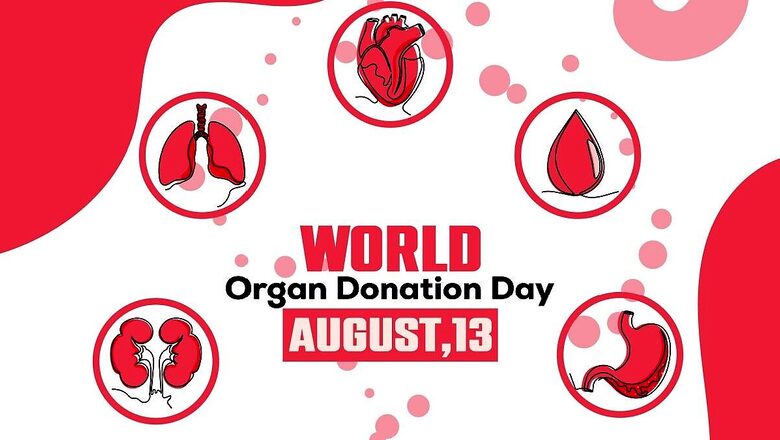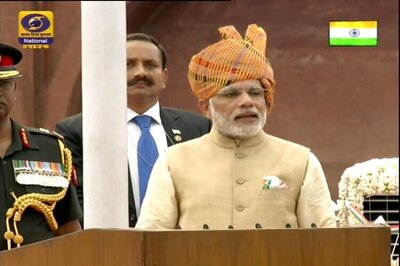
views
Organ donation saves countless lives each year, yet myths and misconceptions cause hesitation among potential donors. It is crucial to address these myths and provide accurate information to encourage informed decisions about organ donation.
In India, there is a significant demand-supply gap, with over 300,000 patients on the waiting list and around 20 individuals dying daily due to organ shortages. From 2013 to June 2024, 1,447 donors contributed 5,472 organs, including kidneys, livers, hearts, lungs, and eyes. Despite these efforts, donations have increased slowly due to infrastructural issues and lack of awareness. Dr Anurag Shrimal, Director, Transplant Surgery, Nanavati Max Super Speciality Hospital, Mumbai debunks myths surrounding organ donation:
Myth 1: “Doctors Won’t Try as Hard to Save My Life If They Know I’m an Organ Donor”
A pervasive myth is the fear that doctors will prioritize organ retrieval over patient care if they know the patient is an organ donor. This is false. The primary duty of medical professionals is to save lives, and they will exhaust all efforts to do so. The organ donation team is separate from the medical team treating the patient. Only after all life-saving measures have failed and death has been declared does the organ donation team become involved.
Myth 2: “I Can’t Be an Organ Donor Due to My Age or Health Condition”
Many people believe they are too old or unhealthy to be organ donors. However, there are no absolute age or health restrictions for organ donation. Each potential donor is evaluated individually, and organs are assessed at the time of death to determine their suitability for transplantation. Conditions that might prevent someone from donating blood do not necessarily disqualify them from organ donation.
Myth 3: “My Family Will Be Charged for Donating My Organs”
There is a fear that families will be burdened with additional costs if a loved one donates organs. However, organ donation does not incur any cost to the donor’s family. All expenses related to the donation process are covered by the recipient’s insurance or the organ procurement organization. The donor’s family is only responsible for the usual medical expenses up to the time of death and funeral costs.
Myth 4: “Organ Donation Will Disfigure My Body and Affect Funeral Arrangements”
Concerns about disfigurement and the impact on funeral arrangements deter some from choosing to be donors. Organ donation is a surgical procedure conducted with great care and respect. The donor’s body is treated with dignity, and open-casket funerals are still possible after donation. The surgical incisions are carefully closed and concealed by normal clothing.
Myth 5: “Wealthy or Famous People Receive Organs Faster”
There is a belief that wealth or fame can influence the organ allocation process. This is a myth. The organ allocation system is highly regulated and based on medical criteria such as urgency, compatibility, and the time spent on the waiting list. Factors such as a patient’s income, status, or fame do not play a role in the allocation process.
Myth 6: “Only Major Organs Can Be Donated”
While organs such as the heart, liver, and kidneys are commonly known for transplantation, many people are unaware that tissues and other body parts can also be donated. Corneas, skin, bone, heart valves, and tendons can significantly improve the quality of life for recipients. Even those who cannot donate organs due to certain medical conditions may still be able to donate tissues.
Myth 7: “I Can’t Donate Organs If I Have a Chronic Illness”
People with chronic illnesses often assume they are ineligible to donate their organs. However, the presence of chronic conditions does not automatically exclude someone from being a donor. Each potential donor’s organs are evaluated at the time of death to determine their usability. Many individuals with chronic illnesses can still donate certain organs or tissues.
Myth 8: “I’m Not in Good Enough Health to Donate”
Many potential donors believe their current health status disqualifies them from donating. While some medical conditions might affect the ability to donate specific organs, a thorough medical assessment at the time of death determines which organs and tissues can be used. Age and health should not deter anyone from registering as an organ donor.
Dispelling myths about organ donation is crucial for increasing the number of donors and saving lives. Misunderstandings and false information can prevent people from making informed decisions, reducing the availability of organs for those in need. Education and open dialogue are essential for addressing these myths and fostering a culture of organ donation.




















Comments
0 comment